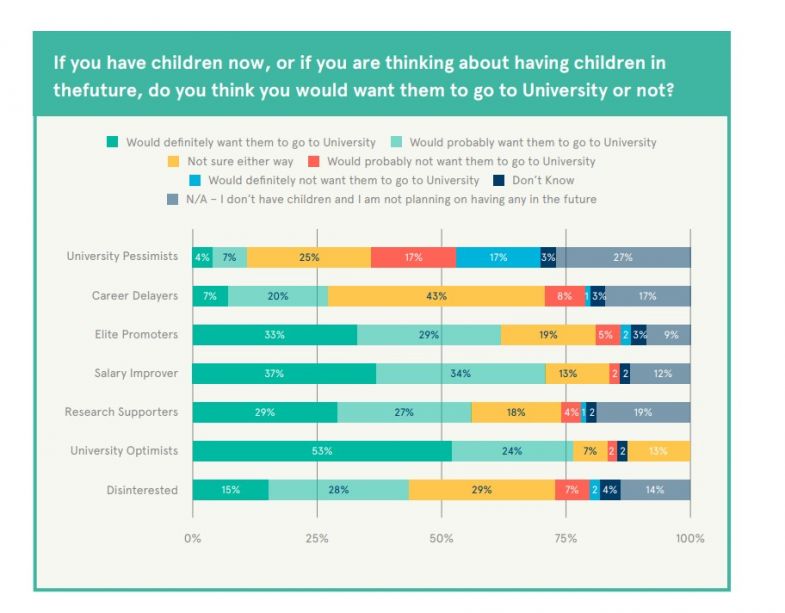Voters in England are generally more supportive of universities than they are in the US, but there are signs that some public perceptions are going in the “wrong direction”, and the views of those who are anti-higher education are becoming more entrenched.
These are among the main findings of new Public First polling conducted on behalf of the UPP Foundation and the Higher Education Policy Institute, published on 2 February.
On the positive side, there is broad support for the work of universities, with 77 per cent of those polled agreeing that they are important for innovation and research, and 57 per cent recognising their importance to the UK economy. This was backed up with strong support for continued public investment in universities, despite cost-of-living pressures.
Forty-six per cent think universities have a positive impact on the way things are going in the country, compared with 11 per cent who think they have a negative effect. This sentiment was echoed across the political spectrum, with Conservative, Labour and Liberal Democrat voters broadly in agreement, in contrast to the US, where Pew Research has identified a partisan split on this question between Democrats and Republicans.

But the report’s authors caution that “there remains, as in 2021, some areas of concern where public perceptions are either moving in the wrong direction or continue to be problematic”.
Notably, one in five people agrees that “a university degree is a waste of time” – and this number was higher among younger people. A majority (58 per cent) felt that a university degree did not prepare students for the real world.
On free speech, 57 per cent agree that it is under “at least some threat” at universities, and only 10 per cent of respondents would put students in the top three groups in need of support with their living costs.
Voters were segmented for the research by their general attitude towards universities, ranging from “optimists” to “pessimists”. This latter group have become “increasingly extreme” in their views since the previous round of polling in 2021. More than half now say they would definitely not want to go to university, and a third would probably or definitely not want their children to enrol, significantly higher numbers than before.
Richard Brabner, director of the UPP Foundation, said the strengthening of negative views was difficult to unpick but could well be connected to the hostility shown towards universities in parts of the press.
While he felt universities should be concerned with demonstrating their value to the whole spectrum of society, he said they should also recognise that the pessimists were “outliers” and the focus of the sector should equally be on those who take a more neutral view and could be persuaded in either direction.






